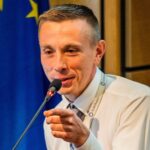
Yevgen Kazakov is a senior researcher at the Laboratory for Plasma Physics at the Royal Military Academy in Brussels, Belgium. His pioneering work on developing new scenarios for plasma heating in magnetic confinement fusion devices earned him the prestigious 2018 Landau-Spitzer Award from the American and European Physical Societies.
From 2016 to 2023, Yevgen led the research team at the tokamak JET in the UK, where he contributed to record-breaking fusion experiments and published several high-impact papers in Nature Portfolio journals. Today, he leads fast-ion physics studies on two of the world’s largest fusion facilities – the tokamak JT-60SA in Japan and the stellarator Wendelstein 7-X in Germany.
As an ITER Scientist Fellow and European leader of the ITPA Energetic Particle Physics group, Yevgen is involved in shaping the research program of ITER, the future most powerful fusion device. In addition to his research, Yevgen Kazakov also serves on the EUROfusion Scientific and Advisory Committee, providing strategic guidance on the realization of the Europe’s roadmap toward fusion energy.

Alberto Fernandez is the director of Nuclear Applications at the Directorate for Energy at the FPS Economy, S.M.E.s, Self-employed and Energy, He supports the Belgian government in all maters related to nuclear energy policy, nuclear provisions, non-proliferation nuclear waste management and nuclear R&D. He is also the Belgian representative to Fusion for Energy, the fusion Horizon Europe Committee, EURATOM Supply Agency and the Vice Chair of the OECD Nuclear Energy Agency.
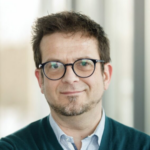
Geert Verdoolaege is an Associate Professor at Ghent University (UGent, Belgium), where he leads the research unit Nuclear Fusion (infusion). He obtained the M.Sc. degree in theoretical physics in 1999 and the Ph.D. in engineering physics in 2006, both at UGent. His research activities comprise development of data analysis techniques using methods from probability theory, machine learning and information geometry, and their application to nuclear fusion experiments. In addition, he teaches master courses on plasma physics and on continuum mechanics. He is also involved in international fusion education through the European fusion master FUSION-EP and joint PhD programs. He serves on the editorial board of the multidisciplinary journal Entropy and is a member of the scientific committees of several conferences on nuclear fusion and information science. Furthermore, he is a consulting expert in the International Tokamak Physics Activity (ITPA) Topical Groups on Diagnostics, as well as Transport and Confinement.
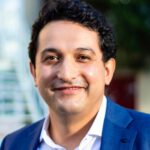
Darío Cruz is the Executive Officer of FuseNet – The European Fusion Education Network. He is responsible of the coordination and operation of the FuseNet Association. A Physicist and Energy Engineer by education, he has been actively involved in fusion research as a graduate from the European Master in Nuclear Fusion Science and Engineering Physics (FUSION-EP) and as a former researcher in functional materials for fusion applications at CIEMAT National Fusion Laboratory in Madrid, Spain.
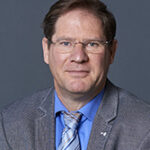
Christian Dierick holds a master’s degree in mechanical engineering (KU Leuven) and joined Agoria, the Belgian federation for the technology industry, in 2004, after 13 years of career in the energy field within the Engie group (Tractebel, Synatom and Electrabel).
Since 2004, Christian was in charge for Agoria’s expert advice and business development for member companies in de fields of energy, environmental technologies, and technology for nuclear and Big Science Markets. As the Belgian Industry Liaison Officer (ILO) for the international “ITER” fusion project in Cadarache since 2007, Christian launched an extension of the typical ITER business opportunities, via Agoria’s newly created Big Science Technology Club. This member club focusses on technology supplies for EU Big Science markets with Belgian relevance, comprising, at present, the Big Science markets of CERN, ESO, ESA, ITER, ET, ESRF, ILL, MYRRHA.
Christian is also a founding father of the international “Big Science Business Forum”-concept and co-chair of the EU-network of Big Science ILO’s, PERIIA.
The purpose of the Belgian Big Science Technology Club is to create a pan-Belgian reference Big Science ecosystem, comprising stakeholders from both the technology supply and scientific demand side in the country’s relevant Big Science markets.
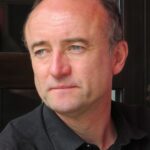
Gaston Meskens holds master degrees in theoretical physics and nuclear engineering from the University of Ghent (Belgium) and works part-time with the Science, Technology and Society group of the Belgian Nuclear Research Centre SCK CEN and with the Centre for Ethics and Value Inquiry of the Faculty of Arts and Philosophy of Ghent University. At the Centre for Ethics and Value Inquiry, his research focuses on a human rights perspective related to intellectual capacity building in the interest of global sustainable development governance. At SCK CEN, his research and outreach is concerned with the ethics of science and technology in general and with the ethical aspects of dealing with nuclear technology in particular. His Seminars on Ethics of Science and Technology are part of multiple international training programmes and university curricula.
Gaston Meskens has built up more than twenty years of experience in transdisciplinary research related to the ethics of governance of issues such as sustainable development, energy, climate change and radioactive waste management and with working in and around the policy processes of the United Nations Framework Convention on Climate Change (UNFCCC), the United Nations Commission on Sustainable Development (UNCSD), the United Nations Non-Proliferation Treaty process (UN-NPT) and of the research-related activities of the European Commission. Since 2006, he is member of the steering committee of the Constituency of Research-oriented Independent Non-Governmental Organisations towards the UNFCCC (the constituency that represents the global scientific world in the United Nations Climate Change negotiation process).
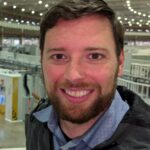
Matthijs van Berkel is group leader of the Energy Systems & Control group of DIFFER’s fusion department. Before he became a group leader at DIFFER, he worked at several research intitutions such as the Vrije Universiteit Brussel and the National Institute for Fusion Science in Japan. Matthijs’ focus has been on data driven modelling and control of heat and particle transport, recently focusing on the fuelling and exhaust of fusion reactors. In the past three years, Matthijs has been the Principal Investigator of the EUROfusion Enabling Research project in which machine learning was employed to superimpose filtered camera images (MANTIS), and interprete them using Machine Learning techniques to perform real-time control of the exhaust.
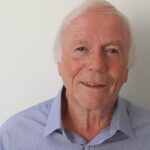
Guido Van Oost is emeritus professor of Nuclear Fusion at Ghent University (Belgium) since 2016. From 1999 till 2013 he was full professor of Plasma Physics at the Department of Applied Physics of Ghent University, and Head of the Research Unit Nuclear Fusion. From 2013 till 2016 he was part-time Extraordinary Professor at Ghent University. He was guest professor at the National Research Nuclear University “MEPhI” (Moscow, Russia) from 2015 till 2019 and at the National Research University “Moscow Power Engineering Institute”(Moscow, Russia) from 2018 till 2020.
He is the founder of the EU Erasmus Mundus “European Master of Science in Nuclear Fusion and Engineering Physics” and of the Erasmus Mundus “International Doctoral College in Fusion Science and Engineering Physics.
His research activities are in the field of controlled magnetic fusion in the framework of the EU fusion programme, mainly at the Royal Military Academy in Brussels and Ghent University (Belgium),the Research Centre Juelich (Germany), and the Institute of Plasma Physics of the Academy of Sciences (Czech Republic).
Prof. Guido Van Oost’ honors and awards include a Honorary Professorship of the Peter the Great St. Petersburg Polytechnic University (Russia), a Silver Commemorative Medal of Charles University in Prague, a Ernst Mach Honorary Medal for Merit in the Physical Sciences (Czech Academy of Sciences), and a Medal of the Czech Technical University in Prague.

In November 2008 Prof. Dr. Ir. Michael Van Schoor was appointed Director of the Belgian research unit LPP ERM/KMS.
Prof. Van Schoor is a polytechnical engineer by training and is a former Air Force Officer. In 1990 he was appointed at the physics department of the Royal Military Academy in Brussels and became involved in fusion research, where he did research work on topics like edge turbulence, plasma rotation, biasing and confinement. He became professor in 2003 and in 2008 also head of the physics department. Prof. Van Schoor retired in 2024.

Jens Verbeeck, born in Turnhout, Belgium in 1984, holds a Master’s degree in Industrial Sciences (Electronics). He began his career as an electronic hardware engineer before pursuing a Ph.D. in Electrical Engineering. In 2015, Jens co-founded MAGICS Technologies NV, a fabless semiconductor company serving the space and nuclear industries. As CEO, he grew the company significantly, expanding the team to 45 members and increasing revenue from €300K in 2016 to over €5M in 2023. Together with the team members, Magics has formed strategic partnerships with the European Space Agency, Fusion for Energy and the ITER fusion reactor. This resulted in multiple engagements with leading companies in both nuclear and space industry, positioning MAGICS as a leader in critical semiconductor technologies.